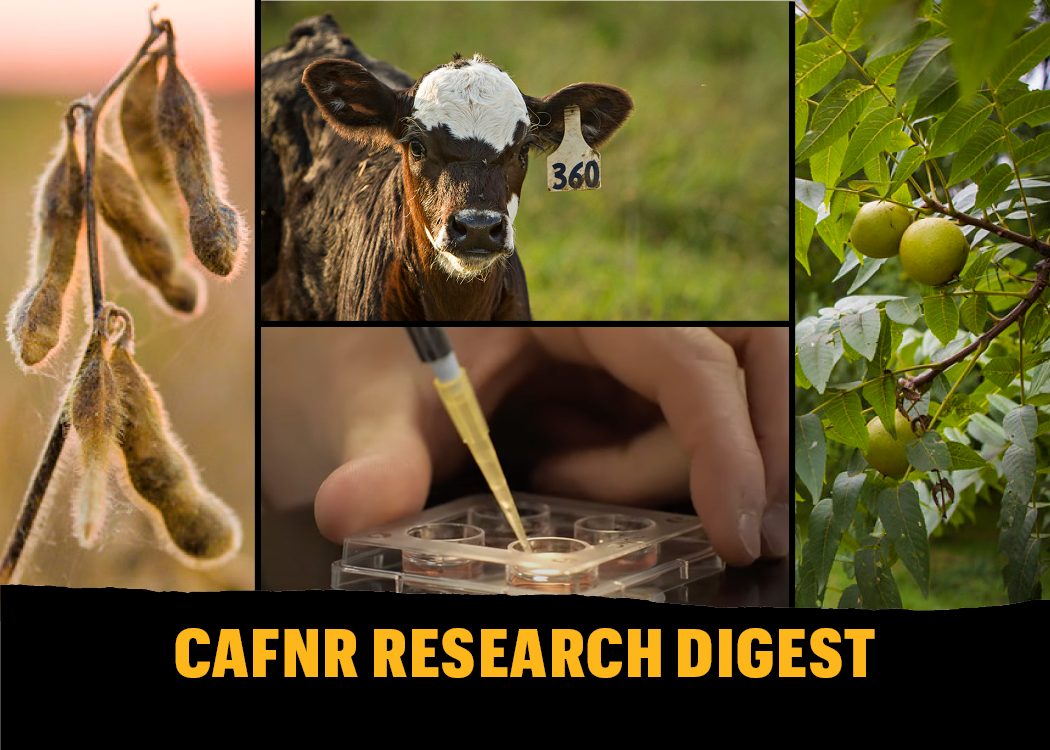|
Mohammad Mobarok Wins Best Student Agricultural Paper Award
Mohammad Mobarok, PhD student in agricultural and applied economics, won the Best Student Agricultural Paper Award at the 2022 Transportation Research Forum annual meeting. Mobarok’s paper was titled “Climate change-induced shifts in precipitation: response of Missouri corn and soybean basis.”
Jianfeng Zhou Co-edits Book on Precision Ag and UAV
Jianfeng Zhou, assistant professor in plant science and technology, has co-edited the book Unmanned Aerial Systems in Precision Agriculture. The book presents the technological progress of UAV applications in precision agriculture and provides multiple UAV application cases in precision agriculture in Europe and the United States.
CAFNR faculty members have received the following recent grants (listed by Principal Investigator):
Mandy Bish, Foliar fungicides and disease management: a strip-trial study, MO Soybean Merchandising Council (MSMC), 5/1/2022-4/30/2023, $45,138
Mandy Bish, Understanding the impacts of soybean cyst nematode seed treatments on SCN and sudden death syndrome in Missouri, MO Soybean Merchandising Council (MSMC), 5/1/2022-4/30/2023, $17,900
Abed Rabbani, Development of a scale of measuring financial risk literacy, National Association of Insurance Commissioners, 5/10/2022-5/9/2023, $5,000
Tim Reinbott, Do crop rotation and cover crops impact soil health, soil water, productivity and profitability in Missouri soybean systems?, MO Soybean Merchandising Council (MSMC), 4/1/2022- 3/31/2023, $27,373
Andrew Scaboo, SCN screening for MO breeding program, MO Soybean Merchandising Council (MSMC), 4/1/2022-3/31/2023, $125,000
Emily Sinnott, Southwest bobwhite quail study analysis, Missouri Department of Conservation, 3/1/2022-12/31/2022, $13,200
|
